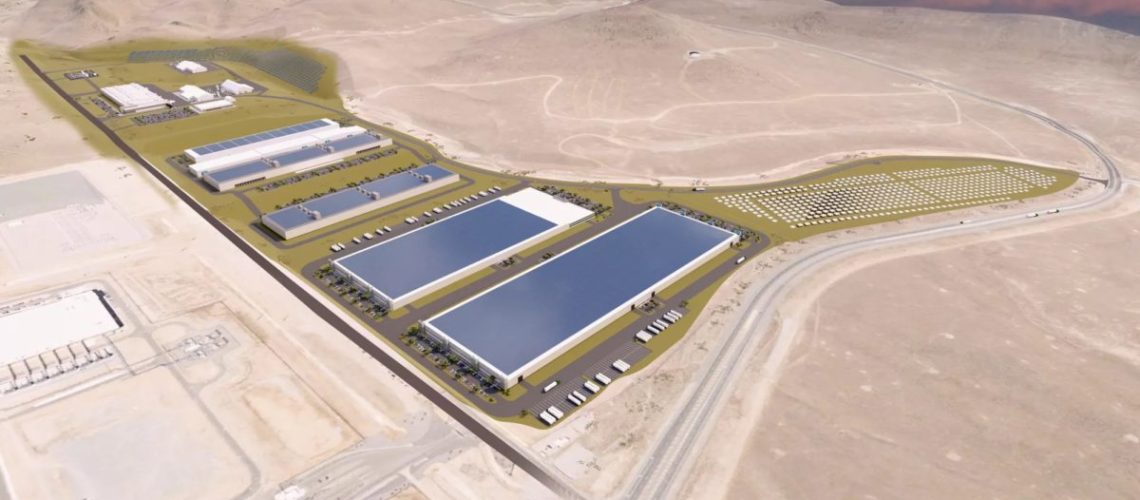The new battery materials gigafactory in Nevada will produce materials to support the manufacture of 1 million electric vehicles annually.
Redwood Materials received a conditional loan commitment of $2 billion from the U.S. Department of Energy’s (DOE) Loan Programs Office (LPO) for the construction and expansion of a battery materials campus in McCarran, Nevada.
Redwood will manufacture anode and cathode materials, in part from recycled materials, which are used for the EV battery market. Together, these components amount to nearly 80% of the material cost of a lithium-ion battery, and currently they are manufactured overseas. According to the company, U.S. battery cell manufacturers are estimated to offshore more than $150 billion in value by 2030.
The company has a manufacturing facility that is already built and operational in northern Nevada, currently producing anode copper foil. The $2 billion DOE loan is supporting the construction and expansion of a gigafactory in McCarran, Nevada.
Panasonic is the first customer for copper foil at the Nevada factory.
The DOE LPO said that, once operational the Nevada gigafactory will be the first domestic facility to produce anode copper foil and cathode active materials in a closed-loop lithium-ion battery manufacturing process by recycling end-of-life battery and production scrap and remanufacturing that feedstock into critical materials.
Anode copper foil and cathode active material are the two most critical components of lithium-ion battery manufacturing for EVs, according to a release from the DOE. The company intends to use both new and recycled feedstocks, which are made up of critical materials including lithium, nickel, and cobalt. It will produce an estimated 36,000 metric tons per year of ultra-thin battery-grade copper foil for use as the anode current collector, and approximately 100,000 metric tons per year of cathode active materials.
The company says on average it can recover at least 95% of the critical battery elements (including lithium, nickel, cobalt, manganese, and copper), and use these metals to manufacture anode and cathode components.
Redwood Materials’ Nevada operation already recycles end-of-life batteries from consumer electronics like cell phone batteries, laptop computers, power tools, and other electronic waste, repurposing these feedstocks into critical components that help support the domestic lithium-ion battery supply chain.
Redwood expects to produce 100 GWh per year of battery materials, enough to produce more than 1 million EVs each year. The DOE Loans Program Office estimates that 1 million EVs will reduce annual gasoline consumption by over 395 million gallons and avoiding more than 3.5 million tons of CO2 emissions each year.
This project marks a significant step toward meeting the Biden Administration’s target of seeing 50% of all new vehicles sold in 2030 being zero-emissions vehicles, including battery electric, plug-in hybrid electric, or fuel cell electric vehicles.
Redwood expects to create 3,400 construction jobs and approximately 1,600 full-time employees. The company is expected to rely on a construction workforce made up of union, minority and/or woman-owned business enterprises in the construction of the project.
Redwood has additional plants for construction in Kansas, expected to come online in 2025, and South Carolina, which is to begin construction in Q1 2023. The company has partnerships with Audi, Volkswagen Group and Toyota for the supply and repurposing of battery components.
Redwood Materials, headquartered in Carson City, Nev., was founded by J.B. Straubel, co-founder and former chief technology officer of Tesla. Redwood focuses on recycling battery materials, developing a fully closed loop for lithium-ion batteries.



